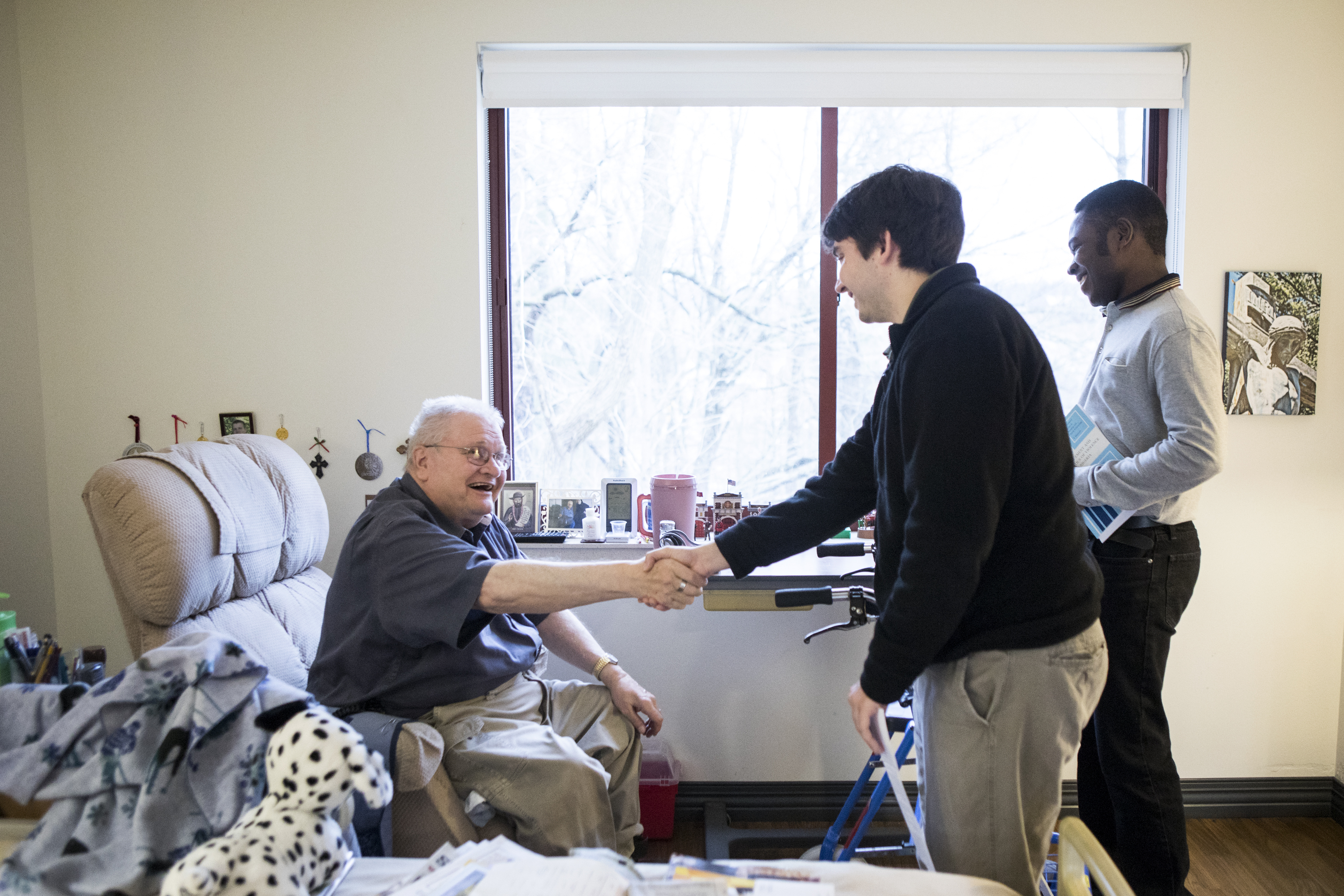Service Fosters Love
Fr. Adrian Burke, OSB
Thursday, August 5, 2021

“The brothers should serve one another.”
Rule of Saint Benedict 35:1
Sometimes St. Benedict’s Rule is like an Impressionist painting; one must step back a little and look at the whole picture to “see” what the artist is trying to convey. The quote above is from Benedict’s Rule regarding the kitchen servers of the week, a chapter that seems at first glance to be rather inconsequential. After all, what does kitchen duty have to do with being a good Benedictine monk, or being a good Christian? Well, a great deal, apparently, but one must step back a little to see it.
In RB 35, Kitchen Servers of the Week, St. Benedict presents the details of weekly kitchen service framed by an important spiritual theme. Benedict’s concern is not just that the monks get their meals on time and served up with little fuss. It seems to me that the “big picture” concern is that the monks serve one another. Kitchen service, what we call “refectory duty” (serving at meals), is a means to imitate Christ, who came to serve. In the gospel of Matthew, Jesus associates his “coming to serve” with giving his life as a ransom for many (Mt 20:28) – so it’s no small thing to serve one another!
St. Benedict insists that “no one will be excused from kitchen service unless sick or engaged in some other important business of the monastery,” and he justifies this by saying that “such service increases reward and fosters love.” Thus, Benedict reminds us that the whole point of being a monk in the first place is to serve (love) God in the way Christ has served (loved) us.
To be truly Christ-like, our service must reflect the character of Christ’s own service – especially his passion and cross. But even as Jesus had help carrying his cross (Simon of Cyrene), we too need help sometimes. “Let those who are not strong have help so that they may serve without distress” (RB 35.3). For Benedict, this presents yet another opportunity for the monks to step up and serve a brother; after all, said the King, just as you did it to the least of my brothers, you did it for me (Mt 25:40). Every monk, likewise, ought to expect help when needed.
Benedict completes the first part of his “framework” for chapter 35 with verse 5, “Let all the rest serve one another in love,” only then does he give instructions for the weekly kitchen service.
Benedict finishes his framing by ending RB 35 with a reminder that we need God’s grace to render Christ-like service. He directs those finishing their week of kitchen service to thank the Lord God “who helped me and comforted me,” while those beginning their week of service should pray, “God, come to my assistance; Lord, make haste to help me,” after which they receive a blessing (RB 35:16-18).
So even kitchen service, in Benedict’s way of seeing things, provides lessons for Christian life by reminding us that God is our first and best help, and that God often works through human means, i.e., the help of a brother/sister. Thus, an important part of our daily “labor” as monks is to be agents of God’s love for one another, which, fundamentally, is what being a Christian is all about.